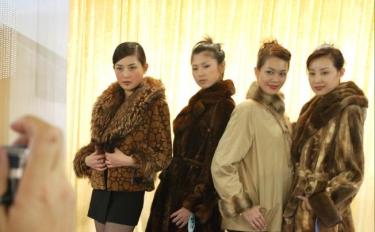The slowdown in China’s economic growth might be making some big Western brands think twice about investing in this lucrative market in the future.
 At the beginning of 2014, both L’Oreal Garnier and Revlon planned exits from China’s competitive cosmetics market.
At the beginning of 2014, both L’Oreal Garnier and Revlon planned exits from China’s competitive cosmetics market.
China is a large and complex arena in which to do business. Foreign companies have often had difficulty navigating it. Luxury brands appear to be suffering more than most, not only because of the economic slowdown but also the government’s crackdown on what it sees as unhealthy extravagance.
“As growth in China slows brands are starting to evaluate their portfolios in China and to focus on where they see the biggest growth,” comments Torsten Stocker, Hong Kong-based partner with consultancy firm AT Kearney
 In truth, L’Oreal is not pulling out totally from the Chinese market. They will, instead, be concentrating on two main brands: L’Oreal Paris and Maybelline New York. China is one of L’Oreal’s biggest markets, they have a 17% share in it, and they see social media marketing as vital to their success there.
In truth, L’Oreal is not pulling out totally from the Chinese market. They will, instead, be concentrating on two main brands: L’Oreal Paris and Maybelline New York. China is one of L’Oreal’s biggest markets, they have a 17% share in it, and they see social media marketing as vital to their success there.
—-
Lancôme, another luxury cosmetic brand in China, has a strong presence on many social networks including Kaixin, Renren and Sina Weibo. It uses prominent key opinion leaders to promote its products on their blogs and in videos. And its Rose Beauty Weibo page has over 900,000 followers who regularly visit for advice and chat, post comments and reblog to their friends and family.
Lancôme created a new campaign for this New Year encouraging their fans to create digital talking greetings cards. “A Merry Lancome New Year” was launced on WeChat, Weibo and their own community website with those who collect the most ‘likes’ eligible to win products from the company’s latest line of cosmetics.
One of the ways in which luxury brands have suffered with the government crackdown in recent months is its effect on the Chinese practice of gift giving. The reason luxury items have caught the attention of the government is because they have often been used as bribes in politics and business.
 But the affluent Chinese who buy luxury products are also changing their habits and purchasing outside of China’s mainland. And, according to analyst and writer Michael Zakkour: “Chinese luxury consumers are turning increasingly toward spending their ample disposable income on lifestyle purchases in addition to pure social status products.”
But the affluent Chinese who buy luxury products are also changing their habits and purchasing outside of China’s mainland. And, according to analyst and writer Michael Zakkour: “Chinese luxury consumers are turning increasingly toward spending their ample disposable income on lifestyle purchases in addition to pure social status products.”
There is no doubt that luxury brands are nervous at the moment. Some like L’Oreal and Revlon are altering their approach to the Chinese market. Others are engaging more deeply on social media to offset any decline in popularity. Government crackdowns can disappear almost as quickly as they appeared.
But it’s not all bad news for luxury brands and the people who market them. The past 10 years has seen rapid growth in the economy and many see the current slowdown as a return to a more stable market that will benefit all Western brands trying to sell themselves in China.
“After a decade of rapid growth, the past two years have been a reality call for luxury brands in China. Rather than a downward trajectory, brands should think of the slowing market as a stabilization of rates that weren’t sustainable in the long-term.” The Jing Daily.

